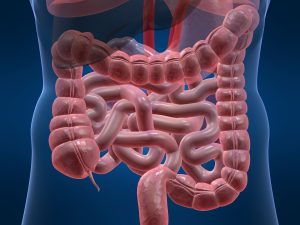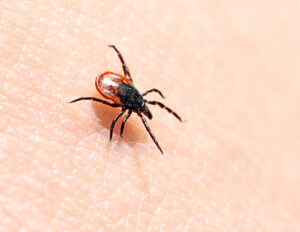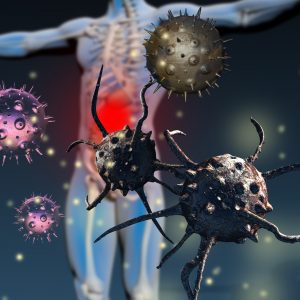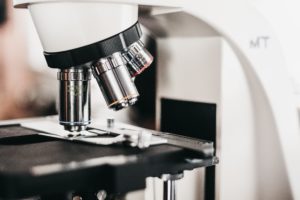
Leaky Gut, Chronic Disease, & Long Term Health
Leaky Gut This blog discusses the very important health issue of leaky gut. You will learn: What is the gut & the gut microbiome What
If you are a doctor or clinician looking to make a bigger impact on the world, have more job satisfaction and have up-to-date protocols and treatment solutions for your patients, check out our free functional medicine training led by functional medicine expert, Dr. Miles Nichols below.
Plus additional BONUS training videos on treating tough cases of brain fog and cognitive impairment!!
In this blog, we will look at Lyme Disease and answer the question ‘Is Lyme Disease curable?’ You will learn:
Do you know what Lyme Disease is and if it can be cured? Do you or your clients suffer from acute or chronic Lyme Disease and its symptoms? If you want to know more about this increasingly common disease and how to best optimize the health of your clients, then this blog is for you. Please read on for answers!
Do you get stuck clinically with chronic symptoms in your patients? Would you like to have a larger impact on improving your clients’ issues?
The key to optimal health is an individual approach using nutrition, lifestyle and exercise. To improve your patients’ quality of life, you need to identify and address the root causes. Our functional medicine course will teach you how to do this. Look into our functional medicine school (mindbodyfunctionalmedicine.com) to have a greater impact on improving your client’s lives.
** Please note: If you want the short summary version of this article, then please click here **
What is Lyme Disease (LD)?
Lyme Disease is a tick-borne illness. It is caused by the bacteria Borrelia burgdorferi and is transmitted through tick bites. It has many different symptoms and can present in many ways.
After the initial tick bite, a person may develop an early stage Borrelia infection which is acute Lyme Disease. If not treated properly, or in some cases, despite treatment, it can worsen and develop into late stage Borrelia infection or chronic Lyme Disease.
Doctors call Lyme Disease the ‘Great Imitator’ because it has so many potential symptoms and can imitate many other diseases. It can often go misdiagnosed or undiagnosed. Even if properly diagnosed, treatment is not always effective. Because of these issues, some people suffer quite a lot from undiagnosed, misdiagnosed, untreated or improperly treated Lyme Disease. Their symptoms can simply show up as something the doctors don’t think is Lyme Disease.
We have written extensively about Lyme Disease in our blogs. Please start here with some definitions of Lyme and continue reading through our blog for tons of information on Lyme Disease. In our clinic, we are experts at diagnosing and treating Lyme.
Is Lyme Disease Curable?
The good news is that…. Lyme Disease is usually curable.
In our medical opinion, Lyme Disease is curable. But it is a complicated disease. Please see our blog here on this topic. It is best to see a Lyme-literate doctor. We recommend that you catch it as early as possible. See a doctor as soon as you realize that you have been bitten by a tick, have a bull’s eye rash or suspect you may have been exposed to Lyme Disease after time in nature.
Lyme is curable, but complicated:
That is a lot of bad news about the challenges of treating Lyme. A Lyme-literate doctor is best positioned to address Lyme and its symptoms. Furthermore, by using a Functional Medicine approach, we can do better in addressing and resolving Lyme symptoms, even in the case of chronic Lyme.
Does your current health situation look like this…
We specialize in finding answers and solutions for complicated chronic illness when people feel like they have tried everything. If this sounds like you, book a free call with us to see if we are the right fit for your health goals.
How does Functional Medicine Treat Lyme Disease?
We have made the point before: Lyme Disease needs to be correctly identified, diagnosed and treated early on. This is best done by a Lyme-literate doctor. In our clinic, we are Lyme-literate doctors.
We look beyond antibiotics and look for the root causes of disease, within the individual patient. Healing Lyme Disease and its various symptoms is an on-going process. It is not based on one specific drug, supplement, herb or therapy. We employ a range of different immune-boosting, health-promoting strategies to strengthen the immune system and keep pathogens under control.
The conventional medicine treatment approach of antibiotics may help. Sometimes it doesn’t. Even so, antibiotics can be damaging to gut health and long-term pharmaceutical use always has side effects. In our clinic, we look for natural treatment approaches. We use medications too but always look to less-invasive solutions with the least side effects first.
You can read about our approach to treating Lyme Disease here.
How do we Treat Lyme in our Clinic?
There are various things we do when treating Lyme Disease, whether it is acute or chronic:
Co-infections: We test for Lyme co-infections. Ehrlichia, Anaplasma, Bartonella and others are co-infections that may be transmitted through the same tick bite. An infected tick can harbor hundreds of bacterial and/or viral pathogens. These possible infections need to be addressed for any Lyme treatment to be complete.
Other chronic infections: Any infection linked to systemic inflammation needs to be addressed. For example, people with Herpes simplex infection or a history of outbreaks, can take medication. Active Epstein-Barr Virus can be treated with herbs.
Herbs: We use various herbs with Lyme Disease. Lyme is a complex microbe so working with and trying out different herbs gives the best chances of success. Japanese knotweed and Cat’s claw are both antimicrobial and anti-inflammatory. They help to support immune function. Andrographis, cistus and turmeric reduce inflammation. Adaptogenic herbs combat stress and regulate the HPA axis.
Supplements: It is important to cover possible nutrient deficiencies with a multi-vitamin /mineral formula. Medicinal Reishi mushrooms have beta-glucans that boost the immune system. Omega 3 reduces inflammation. Monolaurin is antibacterial, antiviral and antifungal, helping to fight pathogens that cause Lyme and Lyme co-infections.
It is important to use a biofilm buster to ensure all of the Lyme, or other, bacteria are treated and eliminated. Bacteria can burrow into tissue and hide from the antimicrobials. With something to break down the biofilm, the bacteria are exposed to the antimicrobials and can be eliminated.
Anti-inflammatory diet: Inflammation can be reduced through a better diet. We like the Paleo or the gluten-free Mediterranean diet best to decrease inflammation, pain and autoimmune-type flare-ups.
Exercise: Exercise is always beneficial but in cases of illness, it needs to be at an appropriate level. Start very slowly, ideally with supervision to make sure you don’t overdo it. Being too sedentary is actually associated with immune dysfunction and toxin build-up, which are two things that can worsen Lyme symptoms.
Stress reduction and management: It is important to maintain proper hormonal balance and regulate cortisol and keep it at healthy levels. To cope with stress and increase mindfulness, we recommend meditation, yoga, tai chi, guided mediations, apps, journaling, breathing exercises and other resources. Each person needs to find a stress management method that works best for them.
Sleep: Good sleep is critical to maintain strong immune function and general good health. Practice good sleep hygiene to make sure you get 7-8 hours of quality sleep per night.
Gut heath: Gut health is the foundation of overall health. 70-80% of immune function is based on good gut health. We check for intestinal permeability or leaky gut, infections, inflammation or impaired absorption / digestion. We often put our Lyme patients on a gut healing protocol with dietary restrictions, gut-healing nutrients, digestive enzyme support and treatment of any identified dysbiosis. We also use prebiotics and probiotics.
Address inflammation & possible autoimmunity: We address inflammation and potential autoimmune reactions. This is done via an anti-inflammatory diet, improving gut health and repairing leaky gut, reducing toxins/ stress/ anything that increases inflammation and an over-reactive immune response. We look for systemic inflammation. We can give supplement support and anti-inflammatory herbs, such as liposomal glutathione, fish oil, resveratrol, vitamins C and D, Boswellia, quercetin and omega-3 fats.
Toxins: Reducing toxin exposure and possibly detoxing toxins help the immune system to function well. People may have toxicity from metals (mercury or lead), organic pollutants (benzene, phthalates, or organophosphate insecticides) or mold or other biotoxins. A targeted detoxification protocol using binding agents (Cholestyramine or bentonite clay), sauna, herbs, sulforaphane and avoiding seafood can help to reduce the toxic load (Toups K, 2022).
Acupuncture: Acupuncture helps control inflammation. Stimulating certain acupuncture points can control the immune responses to bacterial infections and lessen systemic inflammatory responses to bacterial infection (Akoolo L, 2022). The interaction between the nervous and immune systems affects how the body responds to acute stressors like infections. Communication between the nervous and immune systems can curb inflammatory responses to a Borrelia burgdorferi infection (Akoolo L, 2022).
Acupuncture has a lasting anti-inflammatory effect on mice (Akoolo L, 2022). Even a short 2-week acupuncture treatment decreased neutrophils in the joints and inflammatory cytokine levels throughout the body in mice, 4 weeks later (Akoolo L, 2022). This shows acupuncture’s lasting anti-inflammatory effect (Akoolo L, 2022).
New Approaches: There is new and interesting research being done to try to find medications that can block Borrelia’s ability to vary its antigens (Davidsson, 2018). If successful, it could mean an end to chronic Lyme Disease (Davidsson, 2018).
Functional Medicine and integrative approaches can be very effective in conditions that have no clear ‘cure’. This goes for Lyme Disease and chronic Lyme as well as conditions like long Covid, chronic fatigue syndrome, fibromyalgia and chronic pain. FM techniques (exercise for depression, mindfulness for stress and anxiety management, an anti-inflammatory diet) can decrease the inflammation that comes with chronic conditions. These are often more effective than pharmaceuticals (Roth A, 2021).
When people suffer from these chronic conditions with ‘no cure’ in conventional medicine, they may lose confidence in conventional medicine. They may see very little improvement despite working with different doctors. Conventional doctors often blame stress for people’s symptoms (Roth A, 2021). While stress is an important factor, this does not identify any of the root causes of illness. This is where Functional Medicine can truly help and very often completely cure people, if the patient puts in the time and dedication required to implement treatments.
In our clinic, we are experts at identifying root causes, diagnosing conditions like Lyme Disease and helping people to address the root causes of illness and improve their health. We are Lyme-literate doctors who treat Lyme Disease and post-Lyme chronic symptoms, with both natural and pharmaceutical approaches, depending on the individual case.
Summary
** Please stay tuned for our next Blog! **
If you are a clinician wanting to learn more about treatment of Lyme Disease, please check out our clinician training programs here.
Does your current health situation look like this…
We specialize in finding answers and solutions for complicated chronic illness when people feel like they have tried everything. If this sounds like you, book a free call with us to see if we are the right fit for your health goals.








Leaky Gut This blog discusses the very important health issue of leaky gut. You will learn: What is the gut & the gut microbiome What

Research on Alzheimer’s disease is continuously looking for what causes the disease and how to better treat Alzheimer’s. A relatively new finding suggests that Alzheimer’s

In this blog, we will look at Lyme Disease and answer the question ‘How does Lyme Disease become chronic?’ You will learn: What Lyme Disease

In this blog, we will look at the causes of Bartonella. You will learn: What Bartonella is and how it compares to Lyme Disease What

In this blog, we will look at the many symptoms of Bartonella. You will learn: What Bartonella is and what causes it What are the

In this blog, we will look at Bartonella. You will learn: What Bartonella is and how it compares to Lyme Disease How Bartonella is spread

In this blog, we will look at Lyme Disease and answer the question ‘Is Lyme Disease curable?’ You will learn: What Lyme Disease is How

In this blog, we will look at Lyme Disease and the growing threat that it has become. You will learn: What Lyme Disease is How

In this blog, we will look at Lyme Disease and mental health. You will learn: How and why Lyme Disease can affect mental health How

In this blog, we will look at cognitive impairment & Alzheimer’s Disease in relation to various lifestyle factors. You will learn: How lifestyle can affect

Alpha Gal Syndrome Today’s article outlines a condition that is thought to affect, conservatively, 3% of the US population. However, there may be many undiagnosed

Can Lyme Disease Cause Joint Pain? In this blog, we will look at Lyme Disease and joint pain. You will learn: How & why Lyme
There was a problem reporting this post.
Please confirm you want to block this member.
You will no longer be able to:
Please allow a few minutes for this process to complete.

